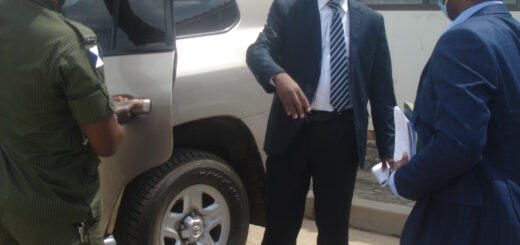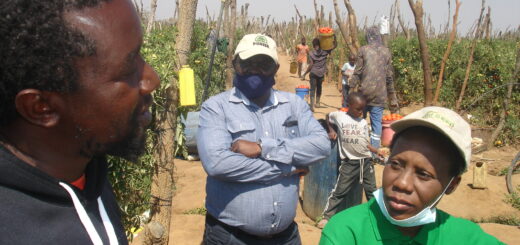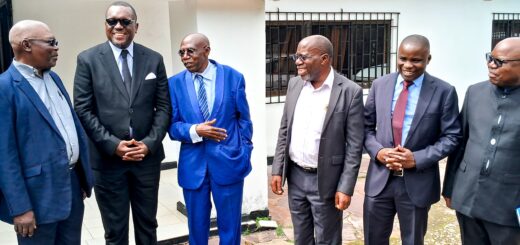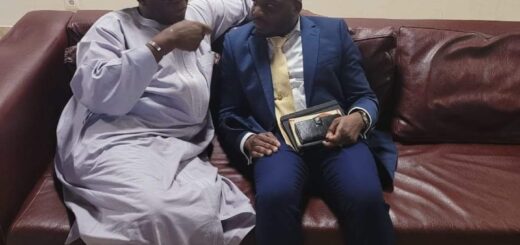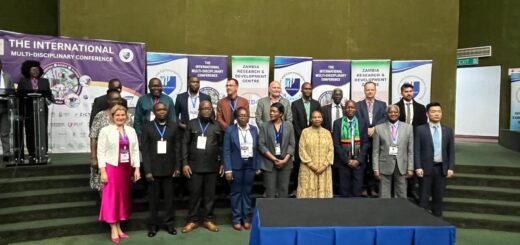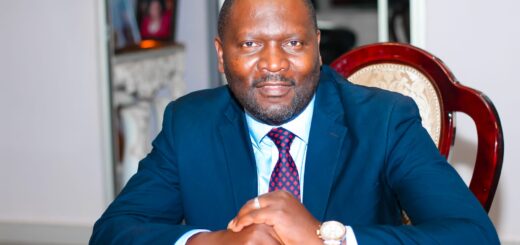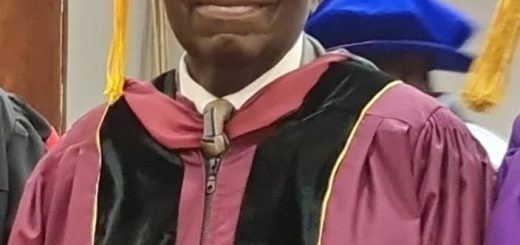PRESS RELEASE DATED SUNDAY 3RD MAY 2020 IN CELEBRATION OF WORLD PRESS FREEDOM DAY
Notice: Undefined index: catFilterList in /home/zambi/public_html/wp-content/plugins/wp-likes/api.php on line 243
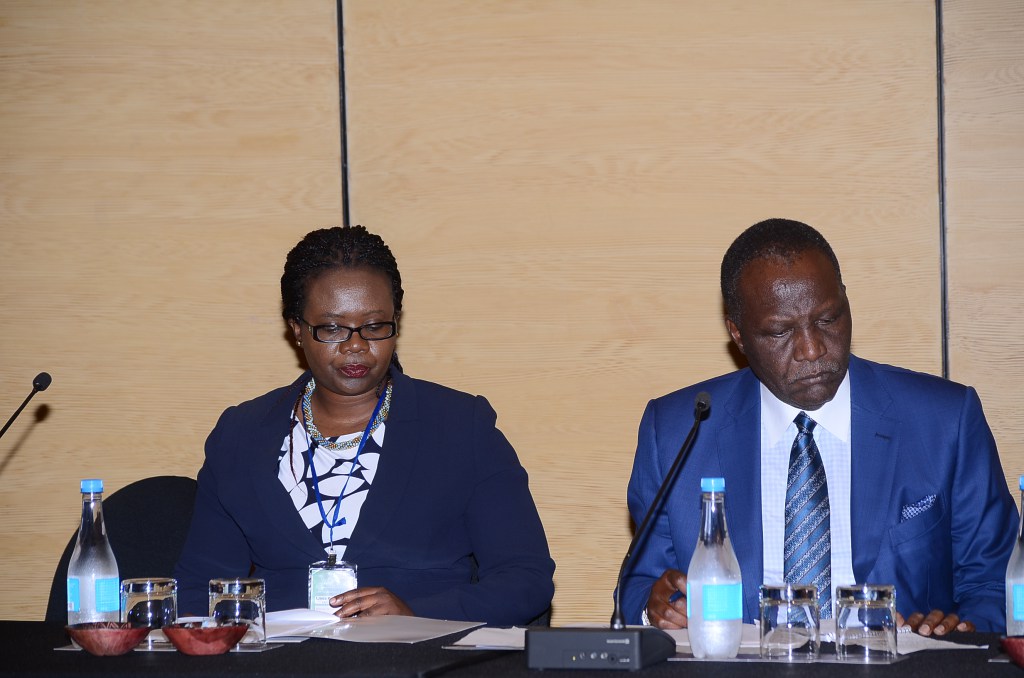
Linda Kasonde with Felix Mutati at Avani
PRESS RELEASE DATED SUNDAY 3RD MAY 2020 IN CELEBRATION OF WORLD PRESS FREEDOM DAY DATED
By Linda Kasonde
Executive Director
Chapter One Foundation – Zambia
Chapter One Foundation promotes and protects human rights, human rights defenders, constitutionalism, social justice and the rule of law in Zambia. Our aim is to promote and protect the Constitution and the rights included in it and by so doing, free the space for Zambians to fully participate in the democratic governance of the country. We recognize that press freedom plays an essential role in empowering individuals, strengthening economies, and fuelling true democracy throughout the world.
World Press Freedom Day is celebrated annually on the 3rd of May as an opportunity to:
• Celebrate the fundamental principles of press freedom;
• Assess the state of press freedom throughout the world;
• Defend the media from attacks on their independence;
• And pay tribute to journalists who have lost their lives in the line of duty.
This year’s theme is: ‘Safety of Journalists – Press freedom and media capture’. Upon announcing the theme, UNESCO stated the following:
“Attacks against journalists occur all over the world, significantly hampering freedom of expression and press freedom. Only when journalists can report safely, without fear of retaliation for critical reporting or other threats to their safety in the execution of their job, can press freedom be achieved.”
Freedom of the press is recognised as being vital to transparency in governments, markets, business and citizens, giving citizens the tools to make well-informed decisions, uncover wrongdoing, inspire reforms, and tell true and remarkable stories that move and inspire. Numerous international and regional instruments have been passed to protect the freedom and safety of the press in recognition of their important role to society. Article 19 of The Universal Declaration of Human Rights and the African Commission Declaration of Principles on Freedom of Expression in Africa, both state that attacks on journalists affect the free flow of information to the public and they urge Countries to put laws in place to protect journalists from harm. In Zambia Article 20 of the Constitution guarantees freedom of the press.
Though freedom of the press is constitutionally guaranteed, it is restricted in practice. International human rights organisations, such as Freedom House and Reporters without Borders, rank the Zambian press as partly free. They highlight the fact that journalists and news outlets are subject to arbitrary closure by authorities, risk arrests for defaming the president and the circulation of news intended to cause fear and alarm the public; frivolous lawsuits, and harassment by the government and political party supporters, increasing self-censorship by media outlets.
Many independent news agencies face other threats to their press freedom, such as harassment, as provisions contained in legislations such as the penal code are selectively applied to journalists who continuously criticize the actions of the State. Furthermore, the increase in online monitoring and interruptions by the state has further affected not only the freedom of press but also the freedom of expression of all citizens; with the government enacting policies restricting online expression pertaining to government activities. It is important for the Zambian government to revise legislation that limits not only circulation of information but also digital rights in order to combat the shrinking civic space in the Country and promote the full participation of all Zambians in the democratic governance of the State.
We at Chapter One Foundation cannot mark this year’s World Press Freedom Day without taking particular note of the closure of the independent television station, Prime Television by the authorities. This is another sign of creeping authoritarianism and the shrinking of the civic space in Zambia. Allowing an independent media allows everyone including the government access to information and to the truth. In a democracy such as ours the marketplace of ideas should be allowed to thrive so that our citizens have access to the best and most useful ideas. That cannot happen where information providers and truth seekers are gagged. As key drivers of civic participation, journalists and media outlets should not only be able to freely disseminate information to the public, they should be free to disseminate information “without fear of retaliation for critical reporting or other threats to their safety in the execution of their job,” as only then will there be true freedom of the press in Zambia.
Chapter One Foundation calls on the government to re-open Prime Television. We further urge the government to create a conducive environment for journalists to do their work unimpeded by enacting legislation that fosters access to information, allows for freedom of expression, protects digital rights and engages various stakeholders on the need to review legislation that impact the freedom of the press and the freedom of expression in Zambia, such as the Penal Code. Chapter One Foundation further calls on the government not to enact legislation that will restrict the civic space and affect the freedom of journalists and other Zambian citizens, such as the cyber-crimes and security legislation. We believe that revisions of the crucial restrictive legislations will not only protect journalists and promote the freedom of press and expression in Zambia, it will also improve civic participation in the country and strengthen our democracy.
By Linda Kasonde
Executive Director
Chapter One Foundation
Five Core Principles of Journalism
1. Truth and Accuracy
Journalists cannot always guarantee ‘truth’, but getting the facts right is the cardinal principle of journalism. We should always strive for accuracy, give all the relevant facts we have and ensure that they have been checked. When we cannot corroborate information we should say so.
2. Independence
Journalists must be independent voices; we should not act, formally or informally, on behalf of special interests whether political, corporate or cultural. We should declare to our editors – or the audience – any of our political affiliations, financial arrangements or other personal information that might constitute a conflict of interest.
3. Fairness and Impartiality
Most stories have at least two sides. While there is no obligation to present every side in every piece, stories should be balanced and add context. Objectivity is not always possible, and may not always be desirable (in the face for example of brutality or inhumanity), but impartial reporting builds trust and confidence.
4. Humanity
Journalists should do no harm. What we publish or broadcast may be hurtful, but we should be aware of the impact of our words and images on the lives of others.
5. Accountability
A sure sign of professionalism and responsible journalism is the ability to hold ourselves accountable. When we commit errors we must correct them and our expressions of regret must be sincere not cynical. We listen to the concerns of our audience. We may not change what readers write or say but we will always provide remedies when we are unfair.
www.rainbownewszambia.com
Ethical Journalism Network http://AccountableJournalism.org


